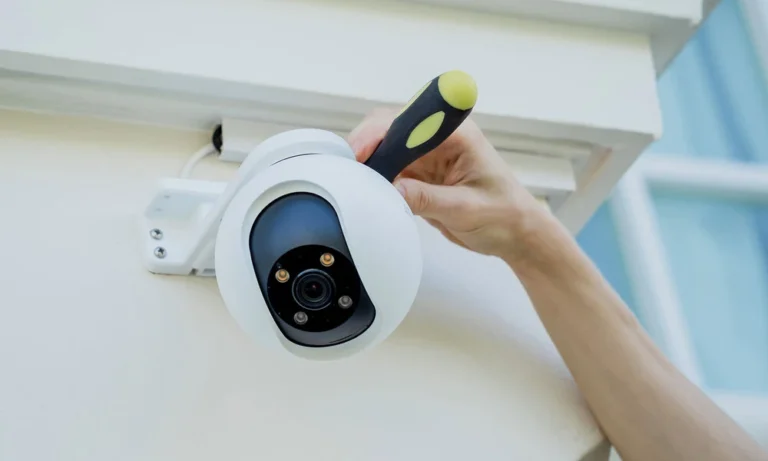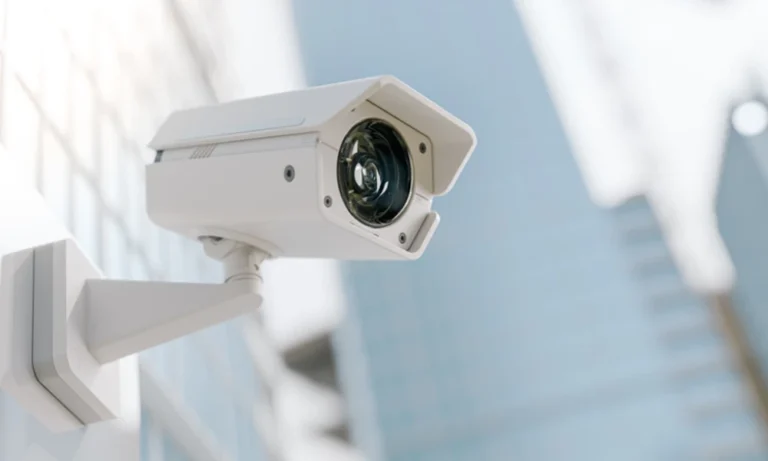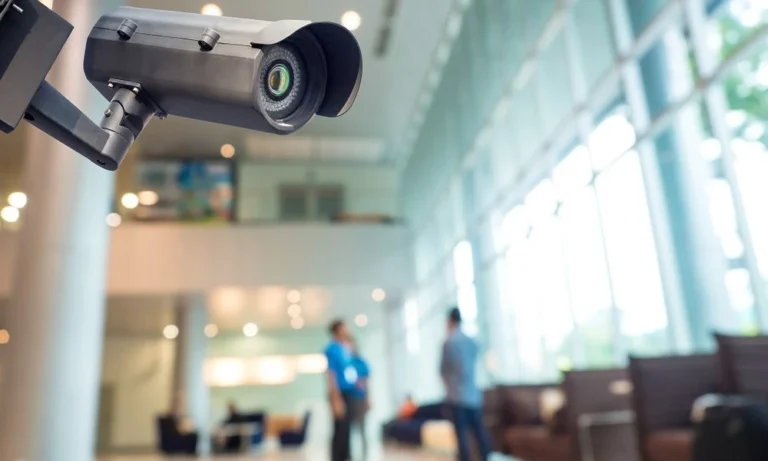What security cameras work without WiFi? Nowadays, both business and residential owners place a high premium on security. With rising concerns over crime, burglary, and vandalism, the demand for reliable security systems has never been higher. Security cameras serve as a crucial deterrent against potential threats, offering peace of mind by monitoring properties in real-time. While many modern security cameras rely on Wi-Fi to function, there is a growing need for alternatives that don’t require an internet connection. This is particularly useful in areas with unreliable Wi-Fi, or for individuals who want to maintain privacy by avoiding cloud storage. In this article, we will explore the different types of security cameras that work without Wi-Fi, how they function, and their benefits for home and business security.
Can Security Cameras Function Normally Without Wi-Fi?

Yes, security cameras can function without Wi-Fi. While most modern cameras rely on Wi-Fi for remote viewing and cloud storage, alternatives like wired, cellular, and battery-powered cameras don’t need Wi-Fi.
Types of Non-Wi-Fi Cameras:
- Wired Cameras: These use cables to transmit video to a DVR/NVR. They offer stable, interference-free performance but require complex installation.
- Cellular Cameras: These use cellular networks (3G/4G/5G) instead of Wi-Fi, ideal for remote areas, but require a data plan.
- Battery-Powered Cameras: These are portable and don’t need wires or Wi-Fi. However, they need frequent battery replacement.
Wi-Fi vs. Non-Wi-Fi Security Cameras:
- Wi-Fi Cameras: Offer remote access and cloud storage, but depend on a stable internet connection.
- Non-Wi-Fi Cameras: More reliable in areas without Wi-Fi, but may lack remote access. Cellular and wired options are often more stable but can be costly.
In short, security cameras without WiFi can work just fine, but each type has trade-offs regarding installation, cost, and features.
What Security Cameras Work Without WiFi?

If you’re looking for non-Wi-Fi security cameras or a surveillance camera without Wi-Fi, there are several types of cameras that operate independently of Wi-Fi. Here’s an overview of different camera types and how they function without an internet connection.
2.1: Wired Security Cameras
How They Work:
Wired security cameras use cables to transmit video data directly to a DVR (Digital Video Recorder) or NVR (Network Video Recorder) for local storage. These systems don’t require an internet connection, making them ideal for users seeking reliable, uninterrupted video recording without Wi-Fi.
Examples of Popular Wired Security Cameras:
- Lorex 4K Ultra HD Security Camera System: Offers high-resolution video, and the footage is stored locally on a DVR.
- Amcrest 4K Outdoor Security Camera: A wired system that provides HD video with local storage through an NVR.
These surveillance cameras without Wi-Fi offer stable performance and are commonly used in businesses or homes with a need for consistent video recording without reliance on internet connectivity.
2.2: Cellular Security Cameras
How They Work:
Cellular security cameras use 4G/5G mobile networks to transmit data instead of Wi-Fi. These cameras are ideal for locations where Wi-Fi isn’t available or reliable. They can send alerts, stream video, and upload footage via cellular data, requiring a data plan.
Examples of Popular Cellular Security Cameras:
- Reolink Go Plus: A 4G LTE camera that works without Wi-Fi, perfect for remote locations.
- Ring Stick Up Cam Solar: Works with a cellular connection when set up with a data plan, ideal for areas without Wi-Fi access.
Cellular cameras are perfect for areas that lack Wi-Fi but have cellular coverage, allowing for continuous monitoring and remote access via mobile networks.
2.3: Battery-Powered Security Cameras
How They Work:
Battery-powered cameras are designed to work offline and store footage locally, typically on an SD card or USB drive. Some models may have optional cloud storage but can function without Wi-Fi for offline recording. They’re highly portable and flexible, ideal for temporary setups or areas where running wires isn’t feasible.
Examples of Battery-Powered Security Cameras:
- Arlo Go: A 4G LTE camera that works without Wi-Fi and can record footage locally or on the cloud.
- Ring Stick Up Cam Battery: This can function without Wi-Fi for local storage, though it can be connected to Wi-Fi if desired.
- Blink Outdoor Camera: A battery-powered camera that can work without Wi-Fi if used with local storage and doesn’t rely on cloud storage.
Battery-powered non-Wi-Fi security cameras provide flexibility and are perfect for locations where wiring or internet access is unavailable. If you want to know about residential camera installation in Indianapolis then trust no other than Cam Security Surveillance.
Security Cameras With Local Video Storage

If you’re looking for a security camera no WiFi or non WiFi security cameras, cameras with local video storage are an excellent choice. These cameras store footage on physical devices like SD cards, hard drives (HDD), or network video recorders (NVR), ensuring reliable security without relying on an internet connection.
What is Local Video Storage?
Local video storage refers to saving footage directly to a physical storage device, such as an SD card, HDD, or NVR, rather than uploading it to the cloud. This means your video data stays on-site and doesn’t require an internet connection to be accessed or stored.
Benefits of Cameras with Local Storage
- Privacy: Since the footage is stored locally, it isn’t uploaded to the cloud, offering better privacy and control over your data.
- No Internet Reliance: Surveillance cameras without Wi-Fi (like those with local storage) don’t require an active internet connection to record video, making them ideal for areas with limited or no Wi-Fi access.
- Cost-Effective: Without the need for cloud storage subscriptions, non-Wi-Fi security cameras with local storage can save you money in the long run.
- Reliability: Local storage ensures that your footage is safe, even if the internet goes down or your Wi-Fi signal is interrupted.
Popular Cameras with Local Video Storage Options
- SD Card Storage:
- Wyze Cam V3: A small and affordable security camera no Wi Fi option that stores footage on an SD card.
- Blink Outdoor Camera: Offers local storage via USB stick and can operate without Wi-Fi.
- HDD Storage:
- Lorex 4K Ultra HD Security System: A wired system that uses HDD for large-scale local video storage.
- Amcrest ProHD: This system offers non-Wi-Fi security cameras that record to an HDD, providing high-quality, reliable storage.
- NVR Storage:
- Reolink 4K PoE Camera System: This surveillance camera without Wi-Fi stores footage directly on an NVR, offering scalable storage solutions for larger setups.
How Local Storage Works in Security Cameras
Local storage works by saving footage directly to a physical storage device, such as an SD card, HDD, or NVR. The camera records video continuously or when motion is detected, and the footage is saved to the connected storage. To access the footage, you can either remove the SD card or connect to the NVR or HDD to view and manage the files. This setup doesn’t require an internet connection, making it perfect for non-Wi-Fi security cameras that provide reliable surveillance.
Are Security Cameras Without Wi-Fi Harder to Install?
When choosing between surveillance cameras without Wi-Fi and Wi-Fi-based cameras, installation plays a key role. While security cameras without WiFi (such as wired, cellular, and battery-powered cameras) can offer reliable, uninterrupted surveillance, their installation process may vary depending on the type of camera. Let’s explore the differences in installation.
Overview of Installation Differences Between Wi-Fi and Non-Wi-Fi Cameras
- Wi-Fi Cameras: These cameras are typically easy to install because they only need power and a Wi-Fi connection to work. You can place the camera, connect it to the Wi-Fi, and start using it right away.
- Non-Wi-Fi Cameras: Surveillance cameras without Wi-Fi, on the other hand, often require more effort. They may use wired connections, mobile networks, or batteries, depending on the model. Each type has its own installation needs.
Wired Security Camera Installation: Benefits and Challenges
Wired security cameras require running cables for power and video transmission to a DVR or NVR for local storage.
- Benefits:
- Reliable, uninterrupted video recording.
- No reliance on Wi-Fi, providing stable footage.
- Challenges:
- Installation is more complex and time-consuming.
- Requires drilling and routing wires through walls, ceilings, or floors.
- Professional installation might be necessary for a clean setup.
Cellular Security Camera Installation: Simplicity and Mobile Setup
Cellular cameras use 4G/5G mobile networks instead of Wi-Fi, with data being sent via cellular signals. They are usually powered by batteries or AC adapters.
- Benefits:
- Easy to set up—just insert a SIM card, place the camera, and connect to mobile data.
- Great for remote locations or areas with weak Wi-Fi signals.
- Challenges:
- Requires a cellular data plan, which adds an ongoing cost.
- Performance depends on the strength of the cellular signal in the area.
Battery-Powered Camera Installation: Ease of Use and Flexibility
Battery-powered cameras are the simplest to install. They don’t need wires or Wi-Fi, as they function independently, storing footage on local devices like SD cards.
Benefits:
- No cables or internet required.
- Ideal for quick, temporary setups or locations where running wires isn’t possible.
- Highly portable and easy to move around.
Challenges:
- Requires regular battery replacement or recharging.
- May have fewer advanced features, such as cloud storage or remote viewing (unless connected to a network).
How to Decide Based on Installation Preferences and Skill Level
If you’re a beginner:
- Battery-powered cameras are the easiest to install. They don’t require technical skills, and you can set them up in minutes.
If you prefer a stable, long-term setup:
- Wired security cameras offer the most stable connection but require more technical expertise and effort for installation. If you’re comfortable with tools or have a professional install them, this could be the best option.
For remote or flexible locations:
Cellular security cameras are a good middle ground, offering simple installation with the advantage of mobility, though they do require a data plan.
Final Thoughts
When choosing a surveillance camera without WiFi, there are several options to consider, including wired, cellular, and battery-powered cameras. Wired cameras offer a stable connection and are great for uninterrupted video storage, but they require more installation effort. Cellular cameras use mobile networks, providing flexibility for remote areas without Wi-Fi, while battery-powered cameras are the easiest to install, offering portability and simplicity. At Cam Security Surveillance, we provide a range of security cameras without WiFi to fit your needs, whether you require local storage or want a flexible, easy-to-install system. If you have any questions or need assistance choosing the right system, call us today at +1 (317) 531-2975. Our team is ready to help you find the perfect security solution!
FAQs
What Security Cameras Work Without WiFi?
Security cameras without WiFi include wired cameras, cellular cameras, and battery-powered cameras. These cameras use local storage, mobile networks, or batteries to operate, instead of relying on an internet connection.
How Do Wired Security Cameras Work Without WiFi?
Wired security cameras do not need WiFi because they connect directly to a DVR or NVR for video recording and storage. They rely on physical cables for power and data transfer.
Can Cellular Security Cameras Work Without WiFi?
Yes, cellular security cameras work without WiFi by using 4G/5G mobile networks to transmit data. They rely on cellular data instead of an internet connection.
Do Battery-Powered Security Cameras Need Wi-Fi?
No, battery-powered security cameras do not need WiFi. They operate on batteries and store footage locally, like on an SD card, without requiring an internet connection for video recording.
What Are The Benefits Of Security Cameras That Don’t Need WiFi?
Non-WiFi security cameras offer privacy, reliability, and security without the need for an internet connection. They are ideal for locations with poor or no WiFi and provide local storage, ensuring footage remains private.








